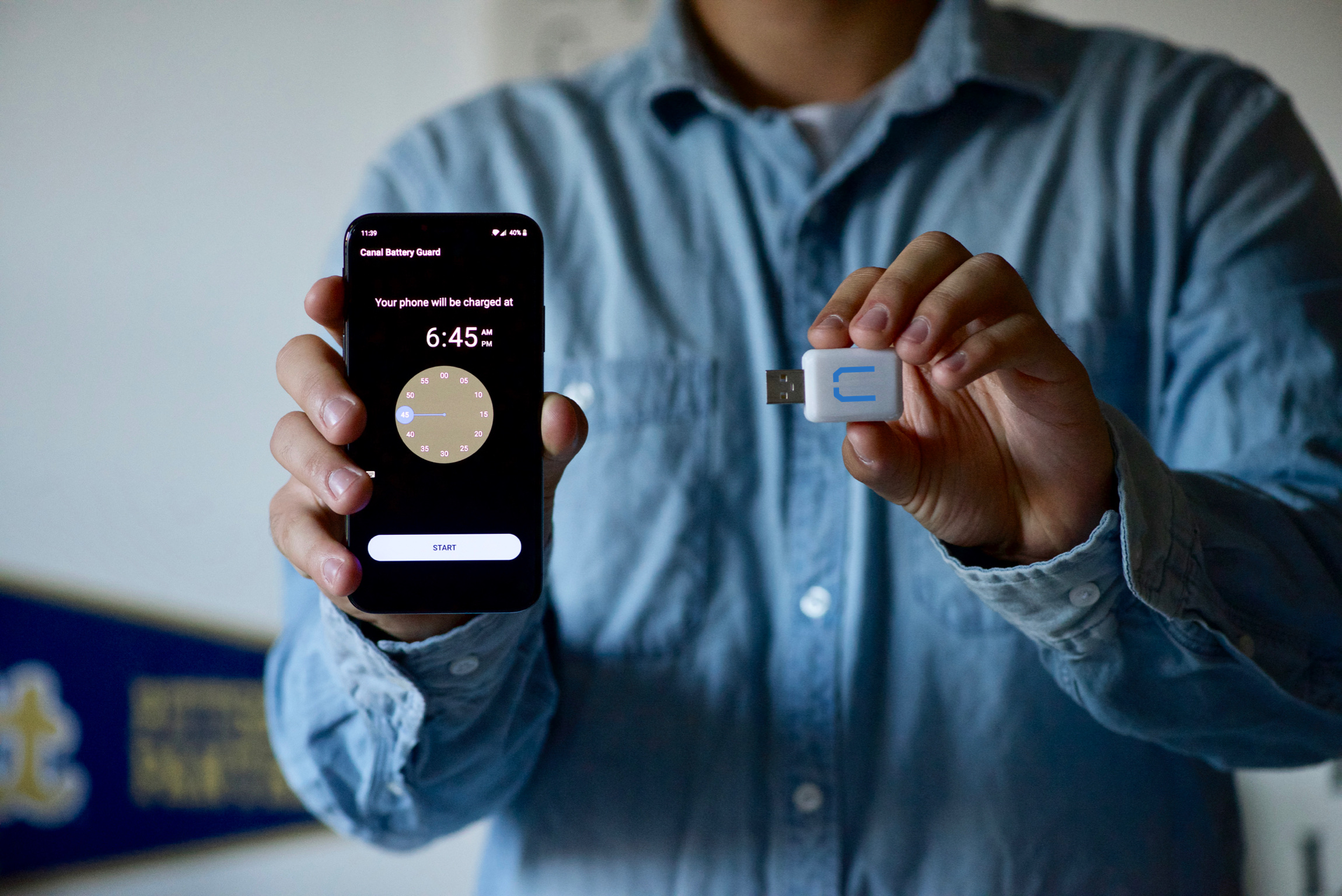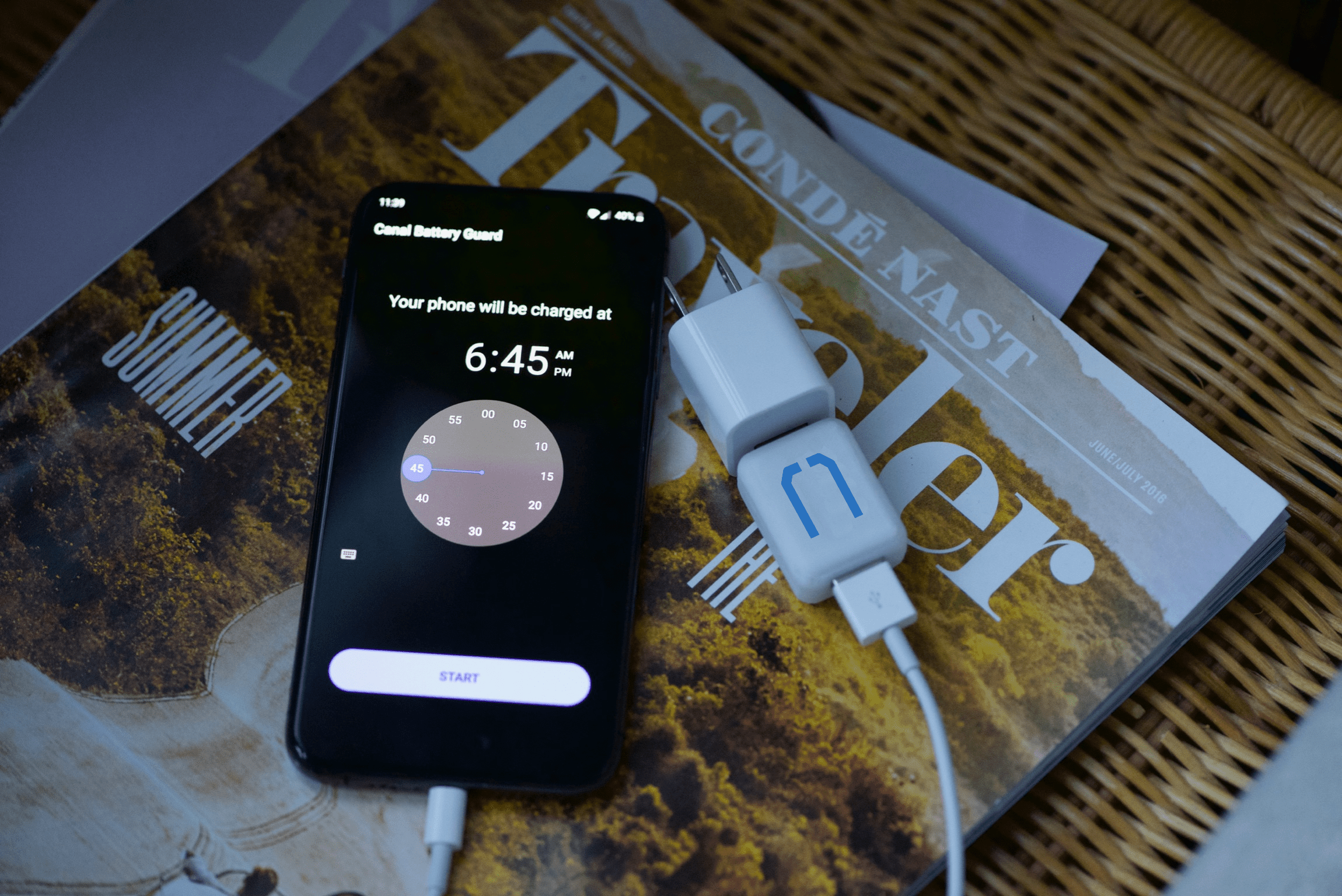
Canal Battery Guard Works to Cut Down on E-waste by Lengthening the Life of Your Phone
By Amanda Waltz
September 15, 2020
The average smartphone battery lasts an average of two years.
This timeline is based on expert estimations, and, frankly, the experience of anyone who has
bought the latest iPhone or Android model, only to see it become obsolete when the battery
burns out. This vicious cycle is not only a source of frustration for consumers but also a major
contributor to electronic and toxic waste.
Now Canal Battery Guard, a new company founded in Pittsburgh, plans to address this problem with a product that will make smart phones and other rechargeable device batteries more sustainable.
Founded by Mohamed Morsy, Nick Kshatri and Matt Rosenblatt, Canal Battery Guard has worked to develop an app and hardware combo designed to lengthen the lifespan of the average phone battery, all of which fall under the category of lithium-ion (li-ion) rechargeable batteries. The Canal Battery Guard comes in the form of an attachment that fits between a charging brick and USB charging cable. It then communicates with an app that regulates charge time, so that the battery does not overheat.
The company started as a project in a University of Pittsburgh freshman engineering class attended by Morsy, Kshatri, and Rosenblatt called The Art of Making.

“The idea was to come up with some of product that we could invent, basically,” says Kshatri, who credits Morsy with the idea.
In April 2020, the concept was a third place winner at Pitt's Randall Family Big Idea Competition, an annual event that recognizes students with the most promising start-up ideas. Part of that victory included $5,000 in prize money, which went towards the launch of Canal Battery Guard.
Morsy, who has since graduated from Pitt with a degree in electrical engineering, says that, while there are similar products on the market, Canal Battery Guard differs in that it works on a timer. He explains that users usually charge their phones overnight, over the span of six to eight hours, while the battery only needs about two hours to fully charge. Leaving it plugged in can lead to overheating that, over time and repeated charges, will degrade the battery.
As explained in an introductory video, all users need to do is set the time they plan on waking up and “Canal Battery Guard will do the rest.” They claim that preliminary testing has seen a cut in “battery decay” by up to 50 percent, “effectively doubling the lifespan of your phone.”
Canal Battery Guard (expected to retail at $19) could help alleviate the stress of constantly buying a new phone, but its inventors were more concerned about the impact discarded phone batteries have on the environment. In doing research, they found that over 50 million tons of electronic waste, also known as “e-waste,” is thrown out worldwide every year.
“Smart phones and lap tops are a big contributing factor to that,” says Morsy, claiming that e-waste is also responsible for around 70 percent of toxic waste in landfills. He says that, in the United States alone, over 150 million phones are thrown out each year. “It's a huge issue.”
The findings align with numbers from the Environmental Protection Agency and the Global E-Waste Monitor 2020, a report released as a collaborative effort of the Sustainable Cycles Programme co-hosted by the United Nations University, the United Nations Institute for Training and Research, the International Telecommunication Union, and the International Solid Waste Association. It found that in 2019, the world population threw out a record 53.6 million metric tons of e-waste, and projected that the number would grow to 74.7 metric tons by 2030.
Long before they're thrown out, the manufacturing of lithium-ion batteries also takes a toll on the environment. One Wired article from 2018 outlined how runoff from lithium mining has polluted waterways and soil around Tibet and in various countries throughout South America.
Morsy believes that, by preserving the longevity of a battery and, in effect, a device's lifespan, Canal Battery Guard could help save consumers the time and money spent getting a new phone, and reduce e-waste.
“We think our product can limit that a bit,” says Morsy.
But their work is not done yet. Morsy and his fellow co-founders will sonn launch a Kickstarter on the Canal Battery Guard website as a way to gauge demand for the product and raise the funds necessary begin manufacturing it for market. They plan on selling it online and, ideally, through cell phone retail stores like Verizon and AT&T.
”We believe that it works. We've done a lot of customer research, and there is a market for it,” says Morsy.

Leave A Comment